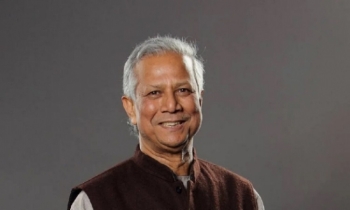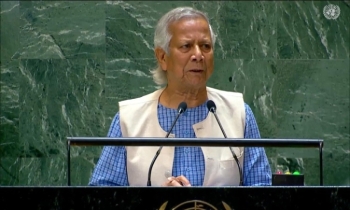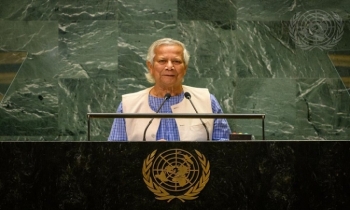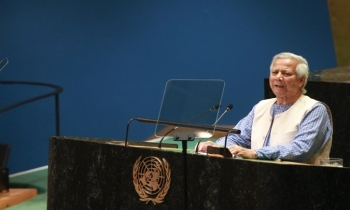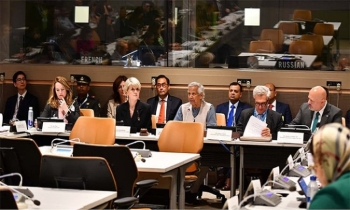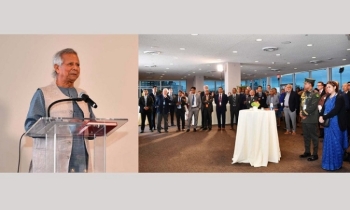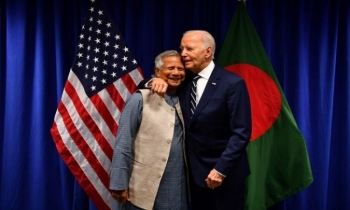New budget aims at containing inflation: AL
BI Desk || BusinessInsider
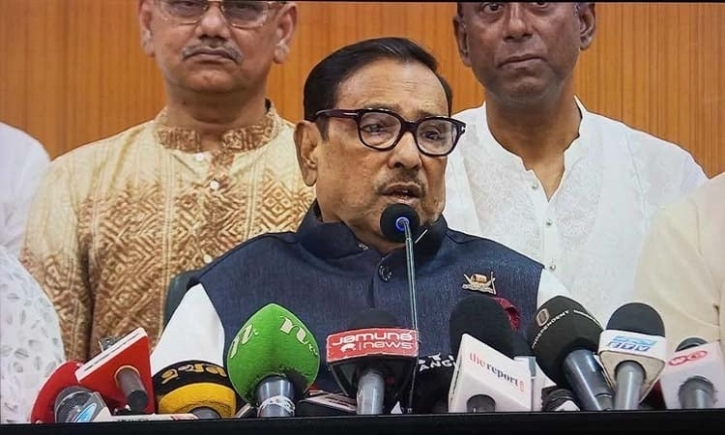
Photo: Collected
Awami League (AL) General Secretary and Road Transport and Bridge Minister Obaidul Quader on Saturday said the main objective of the proposed budget for the fiscal year 2024-25 is to remove ongoing economic uncertainty and crisis and contain high inflation.
“The proposed budget is realistic and pro-people during the internal and global economic crisis,” he told a press conference at AL’s Bangabandhu Avenue central office. The press conference was arranged to express formal post-budget reaction of the party, reports BSS.
Quader said the aim of this budget is to gradually bring the country's economy back to the path of dynamic economic growth which existed before corona pandemic and the ongoing wars in the world.
Welcoming the budget on behalf of AL, the party’s general secretary said the proposed budget is compatible with the slogan of the AL’s election manifesto 'Smart Bangladesh: Development is visible, employment will increase this time'.
He extended thanks to Prime Minister Sheikh Hasina and Finance Minister Abul Hassan Mahmood Ali for presenting a balanced budget.
On June 6, the finance minister placed a Taka 7,97,000 crore national budget for the next fiscal year (FY25) at the Jatiya Sangsad (JS) with the slogan “March Towards Smart Bangladesh Following the Path of Sustainable Development” in parliament.
The aim of the budget is building a smart, prosperous and happy Bangladesh.
Quader said in the last one and a half decades, under the leadership of the successful statesman Sheikh Hasina, Bangladesh has gained dignified status in the world as a fast growing economic power even amid the global and internal crises.
He said Bangladesh is now the 33rd largest economy in the world. Due to economic and social progress, the living standard of the people of Bangladesh is improving day by day, he added.
He said Bangladesh is now self-sufficient not only in rice but also in nutrition production. Bangladesh is progressing in all social and economic indicators, he added.
In 2005 during the BNP-Jamaat coalition government, over 40 percent people were below the poverty line, he said.
the continuous support of the people, the AL government has been able to reduce the poverty rate to 18.7 percent in just 14 years while extreme poverty level is now 5.6 percent, he said.
He said the government and the central bank discouraged the import of less essential goods as soon as the Ukraine war started.
This has reduced imports by more than 15 percent annually which has made it possible to maintain foreign exchange reserves for more than 3 months of imports as per international standards even during the crisis, he added.
Despite this, $22 billion has been spent from the forex to maintain the value of the money, as a result of the forex has decreased a lot, the AL general secretary said.
With the formation of the new government, he said, different institutions are working together to meet the target of the party’s electoral pledges of keeping the commodity prices within the people’s purchasing capacity.
Controlling the money supply can reduce inflation by reducing demand and increasing the supply of goods and services, Quader said, adding this year's budget has brought these two paths together.
A few days ago, the central bank announced a contractionary monetary policy aimed at reducing commodity prices, he said.
Through this policy interest rates have been made market-based and foreign currency exchange rates are re-fixed in a new way, he said, adding this has stabilized the exchange rate of dollar.
There is no possibility of a new dollar crisis, he said, adding reserves are expected to start increasing from now on.
Quader said in line with the monetary policy, fiscal policy has been determined in this year's budget in which less important expenditures have been discouraged, the government's austerity programme has been kept continued, import substitute production has been encouraged through tax management and various incentives and subsidies have been continued and quantity of those has been increased to boost agricultural and industrial production.
All these initiatives in the budget will contain inflation as well as it will play a conducive role in increasing reserves, he hoped, adding that through the proper implementation of this budget, the target of bringing down the inflation rate to 6.5 percent in the next financial year will be fulfilled.
The minister said as per the government's pledge, hundred percent of the people have been brought under electricity coverage.
Compared to 2009, the power generation capacity has increased more than 6 times to 30277 megawatts, Quader said, adding the government has a plan to increase the power generation capacity to 40,000 MW by 2030 and 60,000 MW by 2041, of which 40 percent will be generated from renewable energy sources.
He said that as the present electricity demand has been met, the allocation for electricity in the proposed budget has been reduced by Tk 4,503 crore.
So far, 49 wells have been drilled since 2014 for own gas extraction to reduce fuel import dependency.
The country’s gas production in 2009 was 1744 million cubic feet per day which has increased to around 2100 million cubic feet now, said the minister.
It will be possible to sign the PSC by December this year for exploration and extraction of oil and gas in 24 blocks in shallow sea to extract more gas, he said.
Quader said a strong network is being built in Dhaka city consisting of 6 metro rails. In the last 15 years, 948 km of new railway lines have been constructed and 1,391 km of old lines have been renovated in the country, he added.
The AL general secretary said construction of Khulna to Mongla railway line has been completed which has the potential to serve as a major part of the Trans-Asian Railway and sub-regional corridor.
Construction of railway line up to Payra port in southern region is progressing. Adequate allocations have been kept in the proposed budget to carry forward these works, he said.
“When Awami League formed the government in 2009, we got an economy with 10 percent inflation. Due to Prime Minister Sheikh Hasina's efficiency in running government, in the next two years we curbed inflation and gave the nation a stable economy,” he added.
“We strongly believe that we will be able to contain inflation this time too through the coordinated efforts of various tiers of the present government,” he asserted.
He said fundamental rights of people, agriculture, domestic industry and social security have been prioritized in this budget which will improve the people’s living standard.
Quader said Bangladesh is achieving economic growth every year despite the dollar crisis and high inflation caused by the ongoing international political and economic situation, starting from the Covid-19 pandemic.
He said the growth for the current financial year is estimated to be 5.2 percent.
The AL leader said that due to compatible budget with the monetary policy and balanced with the overall economic situation, 6.75 percent economic growth target has been set for the next financial year.
“We hope to achieve this goal,” he said.
AL Presidium Members Advocate Qamrul Islam and Dr Mostafa Jalal Mohiuddin, Joint General Secretary Mahbubul Alam Hanif, Organizing Secretaries BM Mozammel Haque and Sujit Roy Nandi, Publicity and Publications Secretary Dr Abdus Sobhan Golap and Deputy Office Secretary Sayem Khan were present.


